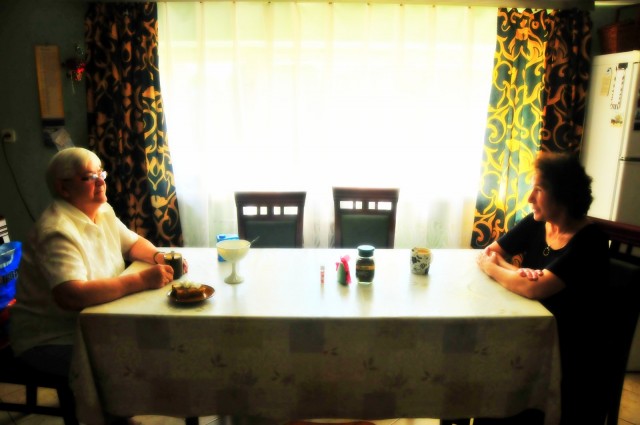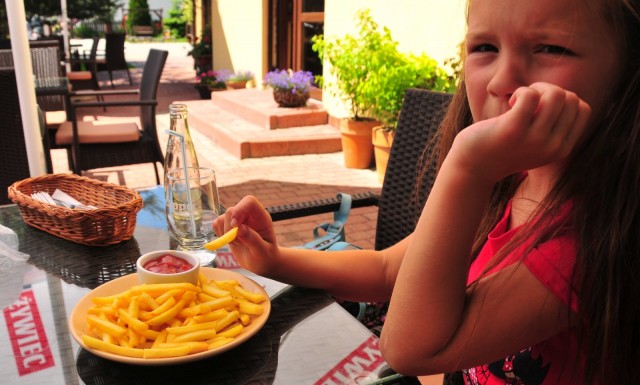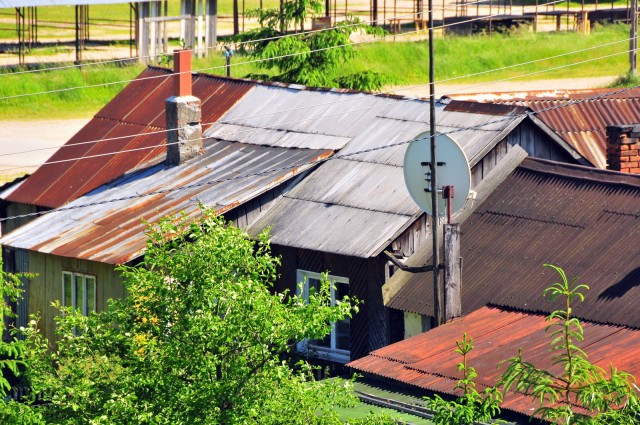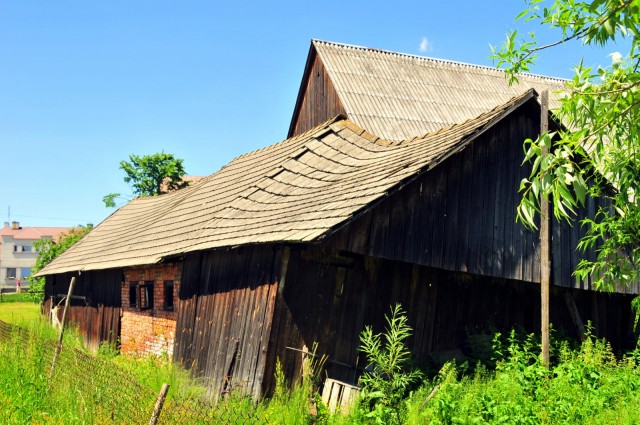Disrepair
The signs of it are everywhere: houses with roofs that have long-since lost the luster of their newness.
Barns collapse on themselves.
Road repairs, melting in the heat of an unusually warm day, prove themselves to be only temporary.
When I first arrived in Poland in 1996, sights like these were common everywhere, in the countryside and in the capital. In 2013, such scenes are less common.
The Visit
“J, are you here?” She somehow knocks at the door, opens the door, enters the house, and says this all at the same time. It took me a long time to grow accustomed to this style of entering a friend’s house, but she’s lived in Orawa all her life, and it comes naturally to her.
I walk to the door as she enters and asks, “Is Pani J here?”
“No, she went to the store a few minutes ago,” I explain. “She should be back shortly.” I usher her into the kitchen, recommending that she wait here. Then again, Babcia has a gift for coming back home, sneaking into the house, and disappearing upstairs to iron this or to clean that, so I suggest that perhaps she’s upstairs. “I’ll just check.”
I head to the base of the stairs–those countless stairs that lead to a floor of rooms for guests of the bed and breakfast and then to the next floor where the family residences are and finally to more guest rooms on the floor above–and call, “Babcia!” The name echoes through the tiled stairway and dies without response.
“I guess she’s not here,” I explain heading back to the kitchen.
“J is too young to have a grandchild your age. You’re calling her ‘grandmother’ because…”
“Because my daughter calls her that,” I explain.
“Oh! You’re K’s husband! Oh, okay, okay. You know, I was K’s teacher.”
We chat for a little about K, about E and L, about roads in Poland (why does that topic always seem to come up? Every Pole summarizes the situation with the same words: “holes within holes.”) and suddenly, there’s Babcia.
“I hear voices!” she sings as she enters. She’s always glad to have visitors, and she’s particularly glad to see M, her close friend.
“What shall I make for you? Coffee? Tea?”

Before long, they’re drinking coffee and talking about who’s gotten married, how M’s mother, who just turned a mind-blowing 99 years old in May, is doing, about their children, their grandchildren, the neighbors, politics, films.
Yet the conversation always seems to turn back to something we might call in English gossip but in Polish sounds somehow different. It’s not just that the word somehow is different. The word for “gossip” in Polish (plotkować) traces its etymology directly to the word for “fence” (płot), for that’s where it traditionally takes place. No, it’s not that the word sounds different–of course it would, as it’s a different language.
It’s the act itself that sounds different. All gossip here eventually turns back to a personal connection, and while malicious gossip certainly does take place, the vast majority of it sounds more like a cross between a local newscast and spoken memoirs. The gossip can reach back years and years, to people they knew decades ago, to events that have long passed from the common memory.
And so the two babcias sit at the kitchen table, swimming in the past, present, and future simultaneously.



